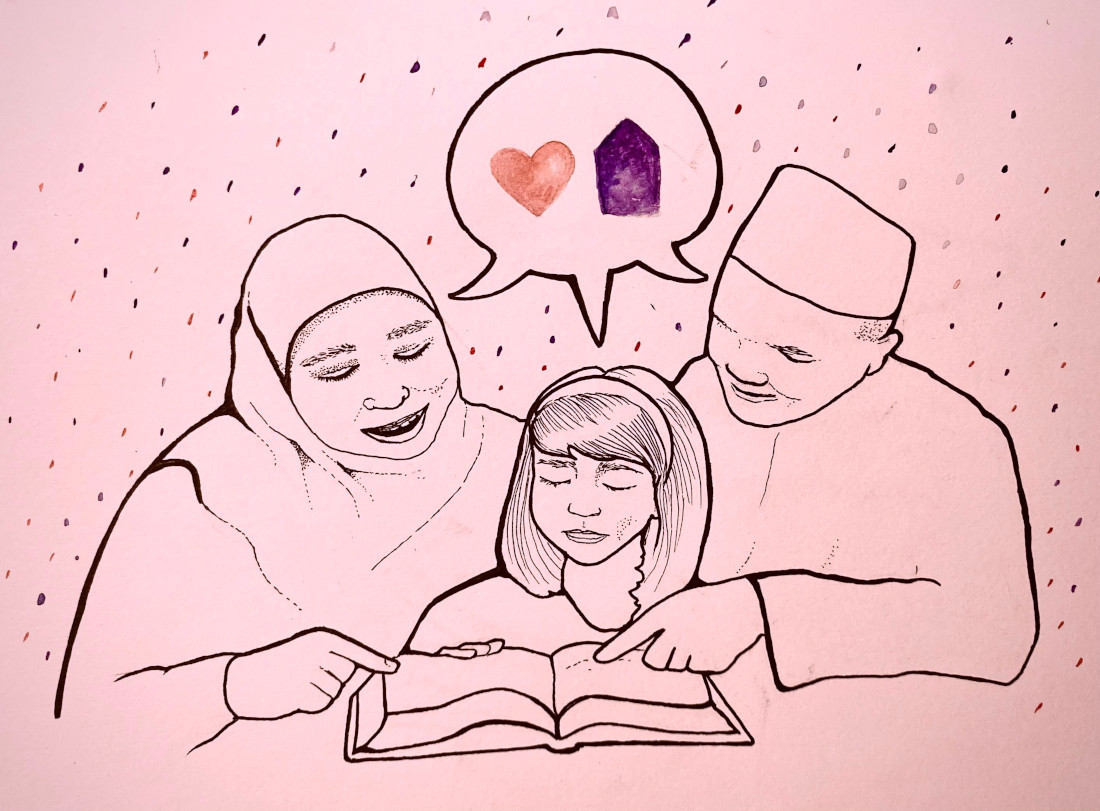Languages speak louder than barriers
Preserving one’s mother tongue while living abroad
Communication is key to fostering relationships, establishing professional connections and for simple tasks like asking for proper directions to a destination. Learning a new language has become a necessity for many people living abroad, as well as an important means of expression for families with international backgrounds.
Luana Cunha worked as a Portuguese teacher in Brazil for years prior to her move to Canada. Her passion for music and leading classrooms have been there for as long as she can remember. That is why Cunha decided to launch the Soneto Language School and help children learn Portuguese and English, while promoting Brazilian culture in Winnipeg.
“I noticed that a lot of children had a hard time expressing themselves in Portuguese, and, to my surprise, those who did speak the language didn’t know how to read or write,” Cunha says.
The courses offered at Soneto range from beginner to intermediate levels, and there is a literacy program available for young students to learn how to read and write in Portuguese. Music and comic books – primarily a Brazilian book series called Turma da Mônica – have been valuable resources to keep students engaged during the learning process.
“One thing that parents might not understand is that literacy doesn’t depend on only reading to their children and making their children read. We choose reading passages that match the student’s level, and over 40 to 50 per cent of our students here have been educated in Portuguese literacy,” Cunha says.
According to the census collected by Statistics Canada in 2016, over 95.5 per cent of Manitoba’s population uses English as their first official language, 3.2 per cent speak French as their first official language and only 8.6 per cent have bilingual knowledge of English and French.
These numbers don’t reflect the full scope of the linguistic diversity in the province, which isn’t just tied to Canada’s official languages. With the rise of immigration and bilingual education in Manitoba, more students have the chance to learn an additional language in a school setting.
The Seven Oaks School Division is only one of the public-school divisions offering bilingual programs and after-school classes in multiple, non-official languages, such as Arabic, Filipino, Ojibwe, Polish and Ukrainian.
The English-Ukrainian Bilingual Program at R. F. Morrison School has attracted children in Grades 1 to 6 who have grown up in Ukrainian-speaking and non-Ukrainian-speaking households alike. The program offers Ukrainian instruction in language arts, social studies, music and art, as well as English instruction in mathematics, science, computer and English language arts.
“Use of language at home is probably one of the greatest factors to fluency here in the school. A lot of the Ukrainian content is in the language-arts curriculum, social studies and music. The opportunity that kids have to develop the Ukrainian language goes beyond the context of language class,” R. F. Morrison principal Andrew Volk says.
The school division’s Ukrainian program has been around for over 40 years because of the historical concentration of Ukrainian settlers in Winnipeg’s North End and Garden City regions.
“Being valued by communities and having started in public schools is a neat thing to see, because you don’t see this (language element) everywhere,” Volk says.
Outside of a school setting, another reason to practice speaking in another language is tied to professional development. More people are drawn to opportunities outside of Canada for job purposes and connections with workplaces abroad.
Jesús Ángel Miguel-García, the director of the Spanish Institute in Winnipeg, has observed that most of the students who enroll to learn Spanish in Winnipeg cite job opportunities and travel as their leading motivations.
“The adults that attend the institute do it for personal development and traveling. A few of them learn Spanish because of their relatives who come from Latin America or Spain, and they want to communicate with them,” Miguel-García says.
Having taught Spanish for over 13 years in Spain, British universities and Canadian universities, Miguel-García couldn’t help but notice that there are less people in Canada who are naturally interested in learning a second language. He says this is something that diverges from his experience teaching in Europe, where most people have more than one language under their belt.
“When you go inside of universities in other countries, you can see the linguistic diversity in the posters, in conferences. There are professors and students switching languages in the halls, and that is part of the culture,” Miguel-García says.
Since English has become somewhat of a globalized language, not everyone has the desire to learn another one or sometimes don’t have the resources to be taught in their family’s mother tongues.
That is the case for University of Manitoba student Peculiar-Gift Aregbesola, who moved to Canada at an early age and was never able to pick up Yorùbá, a language spoken in her home country Nigeria.
“I moved to Canada when I was five, which meant that I had to adapt to learning English by writing and reading through the school system,” she says.
Not being able to speak directly to her grandparents, aunts and uncles when they come to visit, Aregbesola wishes she had learned Yorùbá when she was little so that she wouldn’t face the language barrier she does to this day.
“If I were to learn my language, it would be very hard to find classes that teach Yorùbá in Canada. Sometimes people say that I sound too white, which shouldn’t be the case, since people should know that I come from Nigeria through my voice,” Aregbesola says.
Although the reasoning behind learning a language varies from person to person, it is fair to say there are challenges in any situation when it comes to connecting with people and preserving the language heritage. The importance of language in preserving culture and connecting to others is undeniable.
Published in Volume 76, Number 14 of The Uniter (January 20, 2022)








